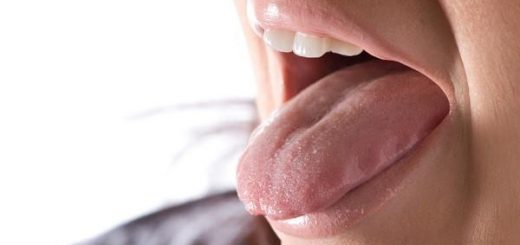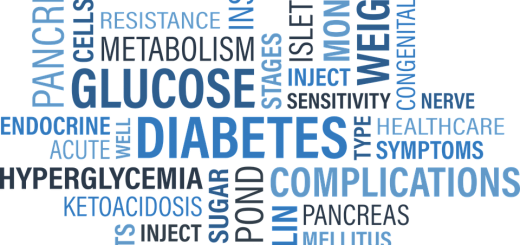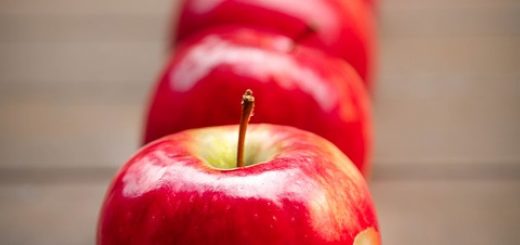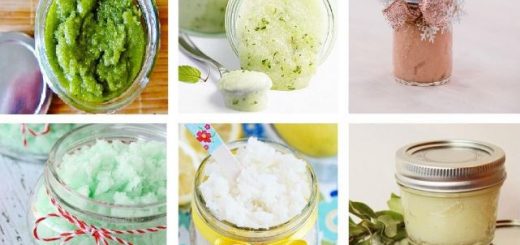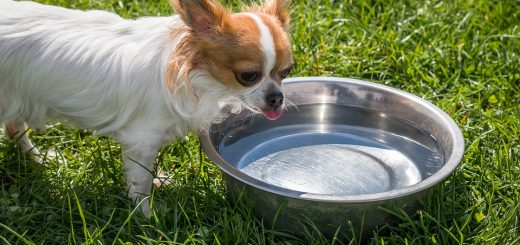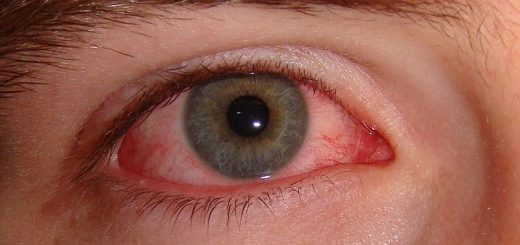20 Home Remedies for Menopause Symptoms
Menopause is when a woman between her 40’s and 50’s stops having menstrual cycles, though it’s not fully diagnosed until the woman’s gone a full year without having a menstrual cycle. While this process is completely natural and happens to every woman, that does not make it any less annoying.
Causes
The causes of menopause is most usually just the body’s decline of being able to make and release reproductive hormones. While that is the cause most women encounter, there are few others.
Some women may need hormone therapy because they have what is called ‘Premature Menopause’. That means that the woman’s stops producing reproductive hormones before her 40’s. Premature Menopause can be from a hormone imbalance or an autoimmune disorder.
Hormone imbalances can be a result of a hysterectomy. Because the hysterectomy, your periods would have stopped right after the surgery. The absence of periods can result in the symptoms of Menopause. Due to the hormone changes being ‘forced’ some women report that the symptoms were harsher because they weren’t introduced gradually over time.
The other best-known cause of Menopause is Chemotherapy or other radiation treatments. Symptoms like hot flashes and irregular periods are side effects of some chemotherapies. If you’re worried they might be, speak to your doctor to be sure.
Symptoms
Signs and symptoms can be hot flashes and chills, irregular periods (in the beginning), emotional swings, trouble sleeping, lower than normal energy, vaginal dryness, weight gain and/or slower metabolism, sagging breasts, and thinning hair.
Note
It is advised that if you are still sexually active in the early in the early stages of menopause and have skipped a period to see a doctor or have a pregnancy test for both your health and the health of the possible baby.
If the symptoms are particularly bad, there are over the counter pills or prescriptions you can get from a doctor. In addition to those, here are some natural ways to relieve the symptoms.
Home Remedies for Menopause Symptoms
-
Soy-Based Foods
Soy’s isoflavones help to balance hormone which can help with quite a few of the symptoms Menopause causes. Adding soy to your diet is as easy as eating tofu or drinking soy milk.
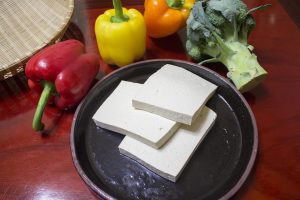
Tofu may look plain, but it can be cooked and seasoned to change its taste and texture
-
Flaxseed
Flaxseed has lignins and those lignins assist in calming hormones levels. One to two tablespoons of ground up flaxseed can be mixed into coffee, yogurt, stirred into fruits or veggies or added to food or drinks in a plethora of different ways.
-
Black Cohosh
This herb is a member of the buttercup family and has been used for ages to steady body temperatures so they help to ease the hot flashes you may encounter. This herb is simple to use seeing as it comes in tablets, capsules, or you can even just stir into a glass of water.
-
Vitamin D
Vitamin D is very easy to get and very important. This vitamin helps many people with depression and seasonal effects disorder so it might help to stabilize mood swings. To get Vitamin D in the most natural way you can, take a walk a minimum of fifteen minutes every day.
If it so happens that the weather won’t allow or you do not have the time, the vitamin also comes in a capsule you take.
If capsules are not your favorite way to get supplements, there are also various foods that are high in Vitamin D. Some foods you might be interested in are: fatty fish such as tuna or salmon, oysters, mushrooms, shrimp, egg yolks, fortified foods, and cod liver oil.
-
Reduce Stress
To try and limit stress is one of the best ways to keep hot flashes from occurring. Mindful breathing is a calming way to calm yourself down from hot flashes. You can do this whenever you are feeling worked up. You inhale for four seconds, hold your breath for seven, and inhale for the count of eight.
To achieve further relaxation throughout the day, try doing this simple breathing exercise three times first in the morning, three times before you go to bed, and three times whenever you feel stressed or feel a hot flash coming on during the day.
-
Ginseng
Ginseng is a herb that different peoples and cultures have been putting into powders, teas, and extras for thousands of years as a stabilizer for anxiety, fatigue, and stress. Add this to your diet in any way you like to benefit from this home remedy.

Ginseng root
-
Yoga
In addition to suggestion five, you can try some yoga. Starting out by doing yoga (whether classes or online videos to follow) yoga is known to calm depression and mood swings.
-
Catch Up on Sleep
The vast majority of women going through Menopause experience loss of sleep because of the increase of depression and/or anxiety, along with night sweats, hot flashes, and chills. There a couple of ways to help sleep come to you faster without taking a sleep aid.
Try turning off your phone, tv, computer, what have you at least an hour before you go to bed. Don’t drink anything with caffeine or alcohol before going to bed and try not to consume something containing nicotine either.
If possible, get yourself into a sleep schedule to help fight off drowsiness; wake up and go to sleep at the same times every day. Also, if you get tired during the day, there is nothing wrong with a power nap.
-
Sage
Sage is a herb that can be used as a seasoning in food or in a tea to drink. Drinking this tea helps to relieve headaches, indigestion, and hot flashes.
-
Stay Cool to Prevent Hot Flashes
Staying cool in itself is a great way not to start a hot flash on your own, but you also don’t want to be cold enough to get chills. There are a couple things you can do to stay at that perfect temperature.
One way is to not use synthetic clothing or bedding. Clothes and bedding made from man-made materials don’t breathe nearly as well as natural cotton and linen, so it makes it easier for you to overheat.
Another way is to not spend extended time in the sun and to. While the sun is good for Vitamin D, you don’t want to overdo it by any means.
A third way to stay cool is to avoid long usage of hot tubs, saunas, and showers hot enough to leave your feet pink. If it is a little too hot in a room or area of your house, you can try opening a window a little or turning on a room fan.
-
Regular Exercise
Keeping up with gentle exercise is a good way to keep your mood swings down and to keep your body from gaining too much weight. Try to exercise for at least half an hour a day.
-
Portion Control
Portion control is another good way to keep weight gain from being too much of an issue while also helping the increase of depression, anxiety, and other mood swings. Every woman out there has had some sort of food craving whether it was while they were on their period, pregnant, or going through Menopause. It’s okay to give into the food cravings, just don’t overdo it. Remember that it was Oscar Wilde who said “All things in moderation, including moderation.”

Small portions may leave you feeling hungry at first, but you will get used to it over time
-
More Fruits and Veggies
Fruits and vegetables are filled the rim with nutrients that help to level mood swings, and fight off depression and anxiety. If you’re able, try to incorporate five servings of vegetables and two of fruit into your daily diet. Keep mind that the more colorful the fruit, the more vitamins it holds.
-
Whole Foods
As good as the juices of fruits or veggies are for you, the whole fruit or veggie that it was made from is even better for you. You get more nutrients so you have fewer problems with mood swings.
-
Stop Smoking
It has been well known that smoking is one of the hardest habits to kick. However, not only for the health of your lungs but for your health overall, it’s best to stop smoking as much as you can. Polls and studies have shown that women who smoke have signs or symptoms of Menopause as far two years before women who do not smoke.
-
Vitamin C
Vitamin C is a good way to stabilize mood swings a depression as well as helping with dry skin. You can take Vitamin C supplement pills, or you can eat food that’s high in the vitamin. Some food that you might like with lots of Vitamin C includes the following: red peppers, oranges, sunflower seeds, and pine nuts.
-
Stay Hydrated
Water can do countless beneficial things for your body. Keeping your body hydrated can help to stop headaches, cramps, and even help hair thinning and loss.

You can coconut water, as well as plain water, to stay hydrated
-
Moisturizing Shampoo and Conditioner
Another good way to stop or reduce hair thinning or loss is to use shampoos and conditioners that are especially made to help with these things. There are shampoos that are made to mend the damage, keep hair moister, and so on.
-
Aloe Vera
Aloe vera, while its known for helping bug bites, burns, cuts, and countless other things; it can even be used to promote hair growth and strength. To use this home remedy for hair growth massage two teaspoons of aloe vera into your hair for between ten and fifteen minutes during your shower before rinsing out and shampooing your hair like you normally would.
-
DIY Hair Masks
If aloe vera doesn’t seem to be working for you, there are multiple different hair masks that you make at home and try that will do that same thing. To learn how to make your hair healthier, read our article 49 Home Remedies for Healthier Hair.
-
Avoid Using Heat on Your Hair
Another way to further prevent hair loss and thinning is to not use heat on your hair. No hair dryers, straighteners, curlies, etc. Dry your hair with a towel or in the summer, it feels amazing to dry your hair slightly with a towel and then sit in front of a fan and let it do the work for you.

Dry your hair naturally to avoid damaging your hair
Try one or more of these home remedies to see how it works for you.
References
https://womeninbalance.org/symptoms-solutions/irritability-mood-swings/
https://www.doctoroz.com/article/natural-ways-ease-menopause-symptoms
https://www.healthline.com/nutrition/9-foods-high-in-vitamin-d#section1
https://www.healthline.com/health/menopause/alternative-treatment#black-cohosh
https://www.drweil.com/health-wellness/health-centers/women/menopause-symptoms-and-treatments/
https://www.mayoclinic.org/diseases-conditions/menopause/symptoms-causes/syc-20353397


